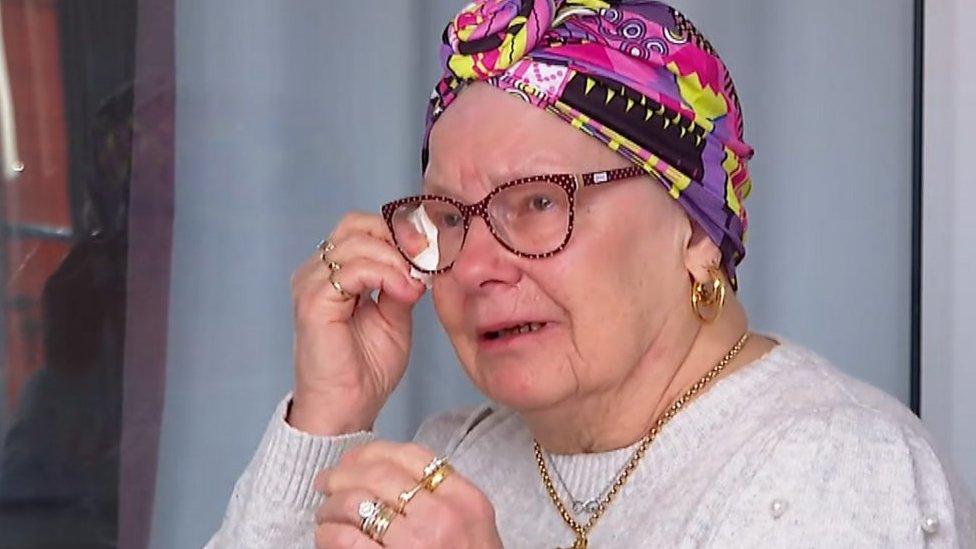Berkshire woman raises awareness of acute myeloid leukaemia
- Published
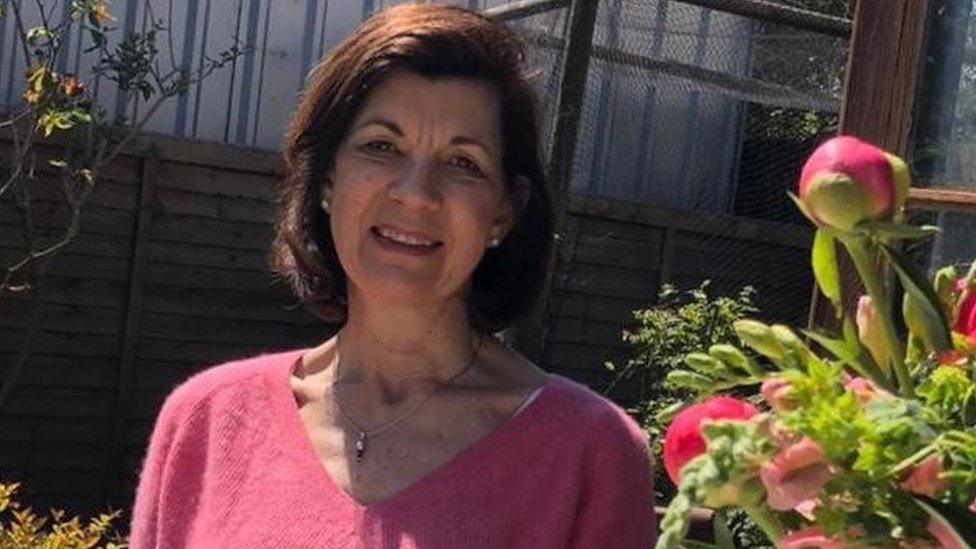
Mary Forester was working full time as an office manager when she began feeling fatigued in September 2020
When Mary Forester began feeling fatigued she thought she had contracted Covid-19, but only a few weeks later she was shocked to discover she really had leukaemia.
The 65-year-old from Newbury, in Berkshire, said she started becoming breathless after short walks in 2020.
After testing negative for coronavirus, she found out that her symptoms were due to an aggressive type of leukaemia.
Now she wants to raise awareness and support cancer research.
"It was a total shock," she said, adding: "In retrospect there were some red flags, but they were all easily explained away."
Ms Forester was told to take a blood test and was woken up at midnight by her doctor when the results were ready.
She asked the doctor if he could wait until the morning but she was told she had to go to the A&E as soon as possible.
When she arrived to the Royal Berkshire Hospital in Reading, Ms Forester was told she had acute myeloid leukaemia (AML), external.
The disease, which is a cancer of the white blood cells, progresses quickly and aggressively and usually requires immediate treatment.
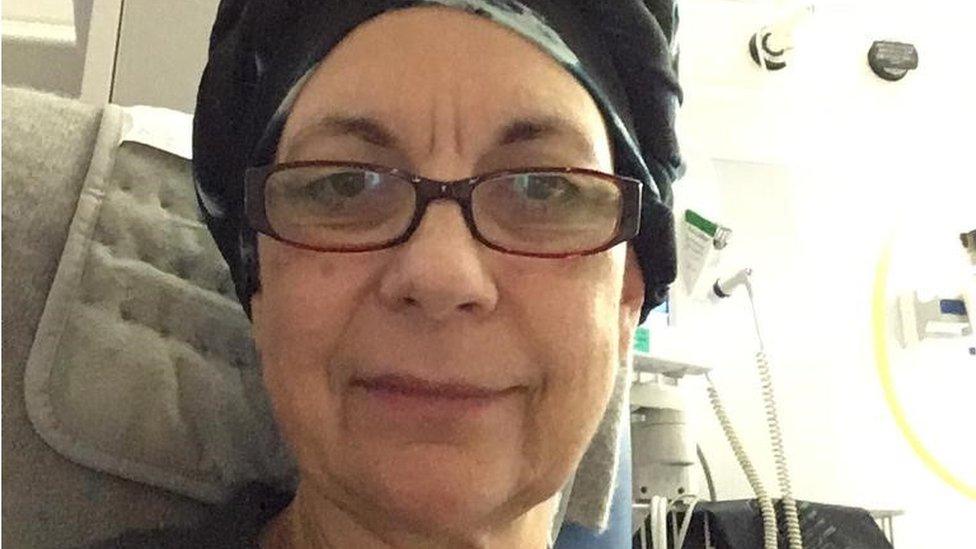
Borrow marrow biopsy results after Ms Forester's first round of chemotherapy showed promising results
The symptoms of AML usually develop over a few weeks and include looking pale, feeling tired or weak, breathlessness, frequent infections and bruising, according to the NHS, external.
Ms Forester said she had had a recurring tooth infection since 2019 and a swollen knee after a fall, but she never thought those could be symptoms of cancer.
"The breathlessness and fatigue had only set in shortly before, but with Covid around, it could have been that," the mother-of-two said.
She was told she would immediately need three rounds of chemotherapy, and ended up staying in hospital for six months until results began to look promising.
"Once I knew that my chances of survival were good, I just took the attitude that I had to get through the chemo rounds, but that there was life to look forward to on the other side," Ms Forester said.
She has been in remission since March 2021 and is urging people who are concerned that they might be suffering from leukaemia to contact their doctors.
Mr Forester is also encouraging residents to support charity Leukaemia UK, which raises money for cancer research.

Follow BBC South on Facebook, external, Twitter, external, or Instagram, external. Send your story ideas to south.newsonline@bbc.co.uk, external.
- Published3 February 2023
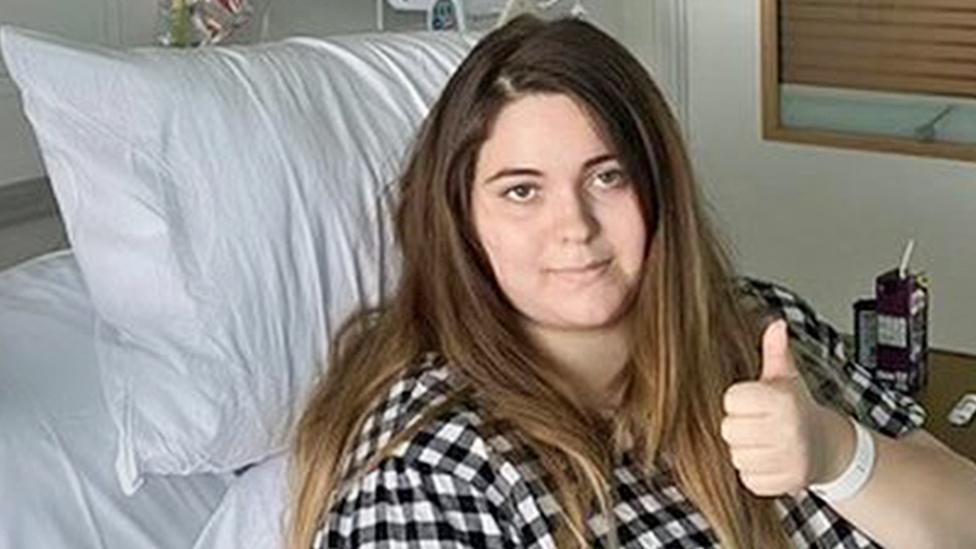
- Published2 September 2022
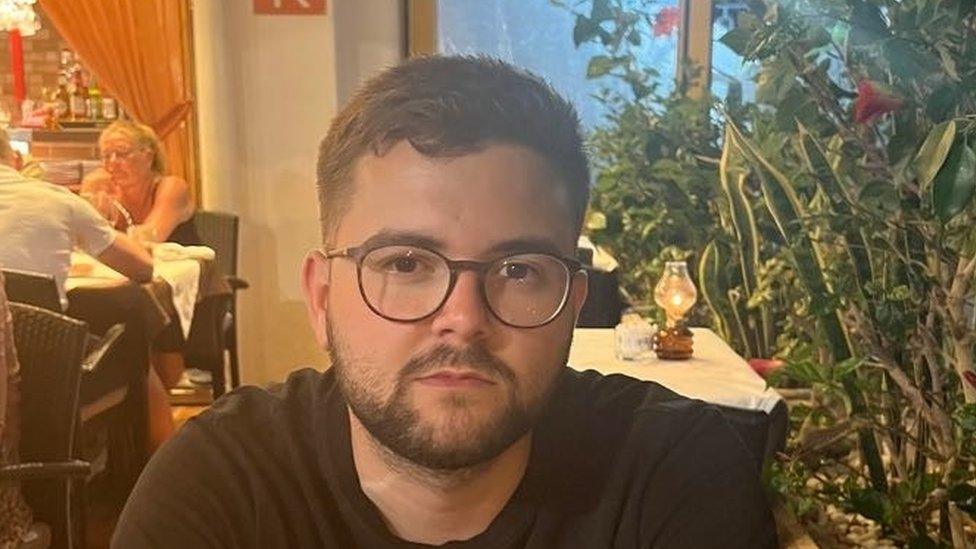
- Published24 August 2022
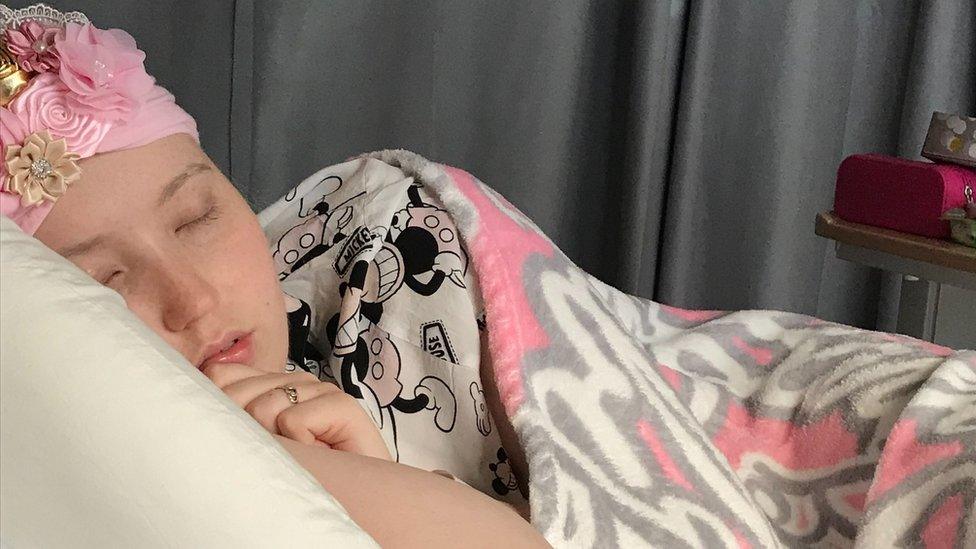
- Published14 March 2022
